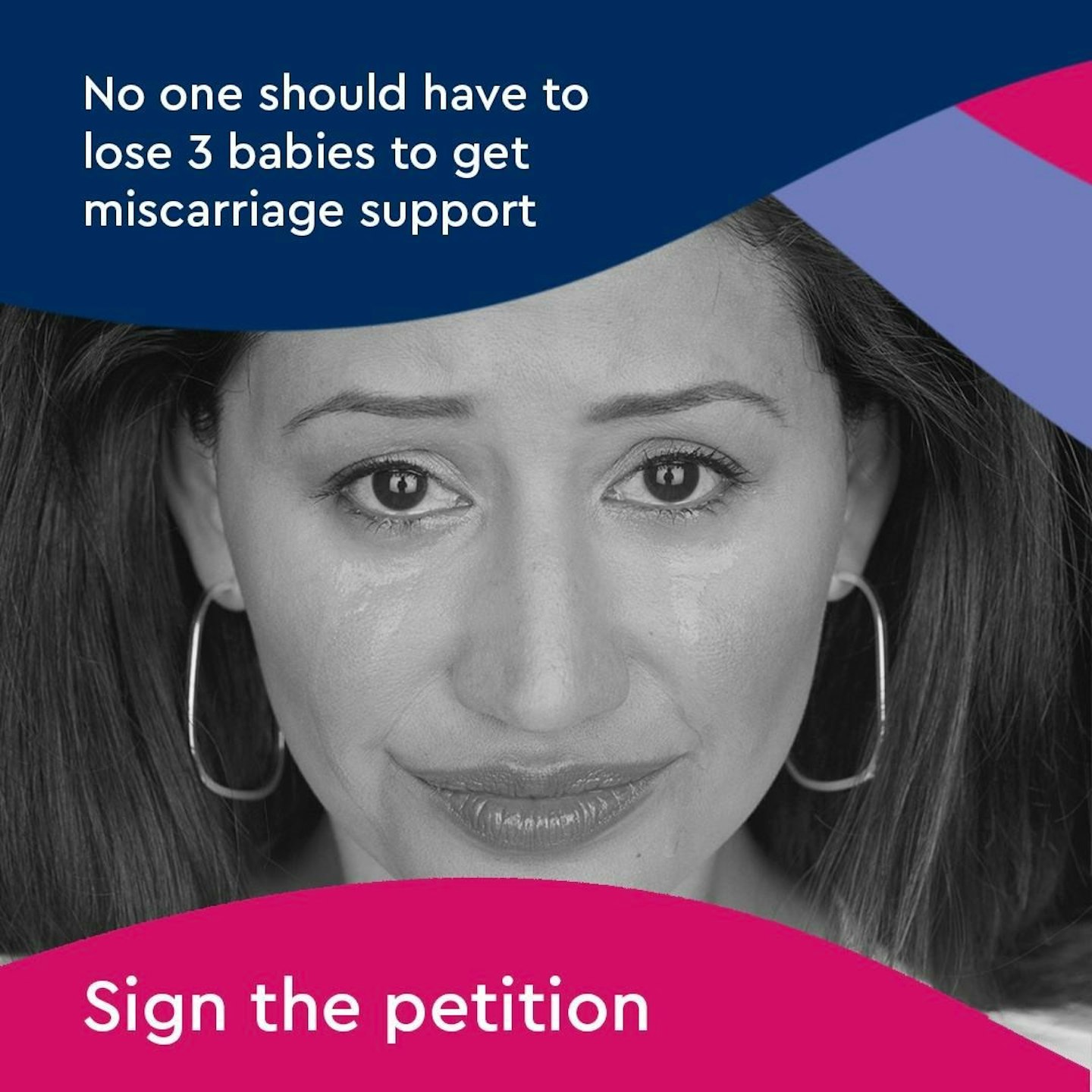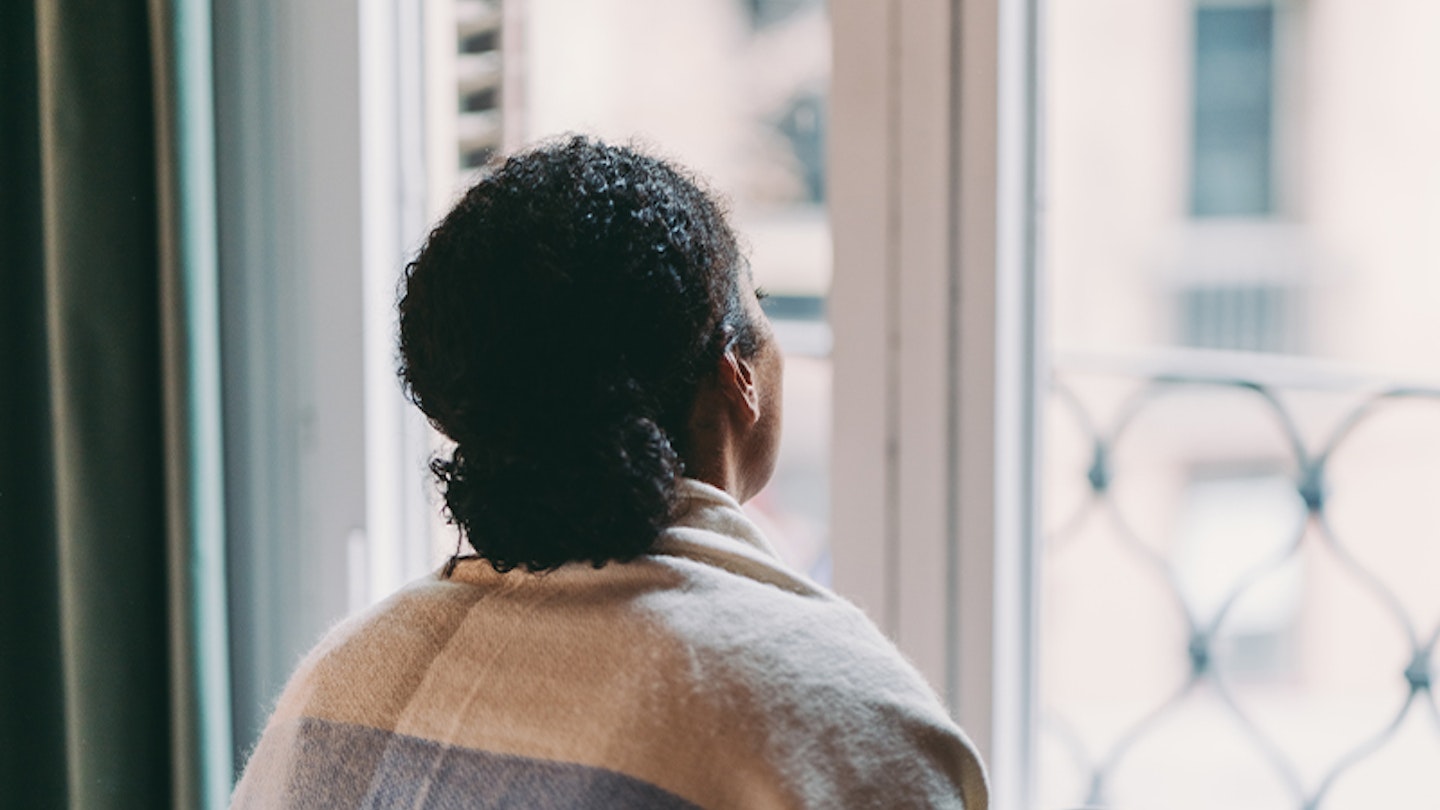Despite the heartbreaking fact that baby loss isn’t rare, losing a baby at any stage of pregnancy doesn’t make the pain any easier to cope with. And whether you know someone who has suffered a miscarriage, or you have yourself, there are many parents battling the loss of their baby without the help and support they so desperately need and deserve.
Leading pregnancy and baby loss charity Tommy’sare more than aware of the issues surrounding miscarriage support, which is why they have begun a movement calling for a change in the vital miscarriage support offered to parents.

Contrary to widespread belief that early pregnancy is too soon to grieve a loss, or that only mothers feel bereft, Tommy’s researchers found that miscarriage has a profound psychological effect on both parents.
Suffering a miscarriage almost quadrupled the risk of suicide, doubled the risk of depression, and similarly raised the risk of anxiety. Previous studies from another team at the Tommy’s centre show that one in five mothers and one in twelve partnershad long-term symptoms of post-traumatic stress after miscarriage.
Tommy’s recent research from Tommy’s National Centre for Miscarriage Research published by the world-renowned Lancet medical journal has shown how miscarriage costs the UK at least £471m a year, on top of the physical and psychological price paid by the 15 per cent of expectant parents estimated to experience it.
Tommy’s is urging national changes to miscarriage care, with emphasis on targeting high-risk groups with specialist help from pre-conception and throughout pregnancy.
Toni’s story
37-year-old Toni Edwards-Beighton from Leicester, who was diagnosed with PTSD after a devastating miscarriage, said: “For months after the loss, I felt like I was losing my mind, struggling with distressing visions and irrational fears – our daughter’s bedroom windows were always locked but I was obsessed with the idea she’d fall out and would ‘see’ her little body crashing to the patio. When it rained I’d see the water turn blood red as it went through the planter where our baby was buried, my period triggered horrific flashbacks every month, and I ended up breaking down in front of my GP, who diagnosed PTSD. My next pregnancy was filled with dread and five years on I still have moments of anxiety, stemming from those three awful weeks going through miscarriage without the care I needed; I had no idea what would happen and then I went through it alone, so that combined lack of information and support deeply affected me.”
The study is also the first to highlight the lasting physical impact of miscarriage on mothers, with each loss leaving them more vulnerable to heart disease and blood clots. Maternal health is damaged further as pregnancies after miscarriage are more likely to end in premature birth or stillbirth, as well as carrying higher risks of complications such as failure of the baby to grow (fetal growth restriction) and life-threatening placenta problems.
Anne’s story
45-year-old Anne Gordon from Clydesdale had two children in her thirties but in the past two years has experienced recurrent miscarriage, going through a fifth loss this month. Anne said: “After my third loss in a row, I had genetic tests and really pushed my GP for blood tests in case there was a cause that could be treated – but sadly they found nothing, it was ‘pure chance’. I’ve asked about hormone treatments but got nowhere, and without understanding why this keeps happening I don’t know if costly private care would even help.
“I’m now in the long three-month wait for any answers about my most recent loss, but I’ll never get a reason for my earlier losses so it’s hard not to wonder if things could’ve been different. The ‘rule of three’ denies so many of us the chance to have a healthy baby, especially in later life when time and opportunity are against us; we shouldn’t have to go through months or years of unexplained pain before anything is done. The right tests and treatments when trying for a baby or newly pregnant could help so many families, as well as easing pressure on the NHS and other services that currently have to support all the parents dealing with the lifelong scars these losses can leave.”
Sadly it’s often not possible to give a reason why a miscarriage happened, but the research identifies a few things that can make it more likely. Some of them can be controlled, like drinking alcohol and smoking cigarettes – but many cannot, so the researchers say that care and support must be targeted at these higher-risk groups, on top of nationwide changes to make quality services consistently available to everyone.
While the link between age and miscarriage is well understood, the study also uncovered a significant risk to Black women, with 40 per cent higher miscarriage rates in this group than White women. Further investigation is needed to understand the reasons for this stark contrast, and Tommy’s researchers are exploring whether it could be related to other health issues that more commonly affect Black women and can complicate pregnancy, such as fibroid conditions and autoimmune disorders.
Katie’s story
32-year-old Katie Bonful from Dartford had two miscarriages in a year before welcoming her son Maximus, thanks to specialist surgery putting a stitch in her cervix to help her body hold onto a baby throughout pregnancy. Katie said: “As a Black mother, it’s really devastating that so many of us go through this without knowing why. I endured some very difficult years, battling depression and suicidal thoughts, struggling to understand why my babies kept dying. After two losses, being pregnant again was terrifying, so it was reassuring to have special care – not only the operation but extra scans throughout my pregnancy and bed rest for the last trimester – but everyone should be able to get that support if they need it, you shouldn’t have to suffer loss before anyone will help you.”
Study author Arri Coomarasamy, Director of Tommy’s National Centre for Miscarriage Research and Professor of Gynaecology & Reproductive Medicine at the University of Birmingham, said: “Despite being such a major study, this is really just the beginning, with many more avenues to investigate – for example, the higher rates in Black women and the relationship with premature birth. We don’t even know exactly how many miscarriages happen in the UK; without this data, the scale of the problem is hidden, and addressing it is not prioritised. As we work to open the 'black box' of miscarriage in hopes of unpicking its causes and finding new therapies, the UK must change its approach to miscarriage care, not only to reduce the risk wherever possible but also to better support those who do tragically lose their babies.”
As well as standardising services across the UK to end the current postcode lottery, campaigners argue that miscarriage care must go beyond current best practice in terms of clinical tests and treatments to include long-term mental health support for both parents, and help should be offered after every loss instead of the current ‘rule of three’.
Considering the impact miscarriage has on physical and mental health, the study also calls for national miscarriage statistics to be routinely collected and published, which the UK already does for other losses such as stillbirth and neonatal death. Researchers say this data would provide a vital benchmark to improve from, and accelerate further studies and public health policy developments, to ultimately improve care and support for thousands of families.
Tommy’s CEO Jane Brewin said: “The variation in quality and availability of miscarriage care across the UK can lead to lifelong problems for families already enduring an unbearable experience; it shouldn’t matter who you are or where you live, and you shouldn’t have to endure repeated heart-breaking losses before you get the right help. Everyone should be given care and advice after each miscarriage to reduce the chance of it happening again, with specialist support for those most at risk. Mothers’ care must consider their long-term risks, especially in future pregnancies, and both parents must be offered mental health support. We know what to do and how to do it – now we need a commitment from the NHS to put the knowledge we have into practice everywhere. With national targets to reduce premature birth and stillbirth, it’s time to prioritise miscarriage too.”
Sign the petition
Tommy's Donation Line: 020 7398 3481
Tommy's Support Line: 0800 0147 800
